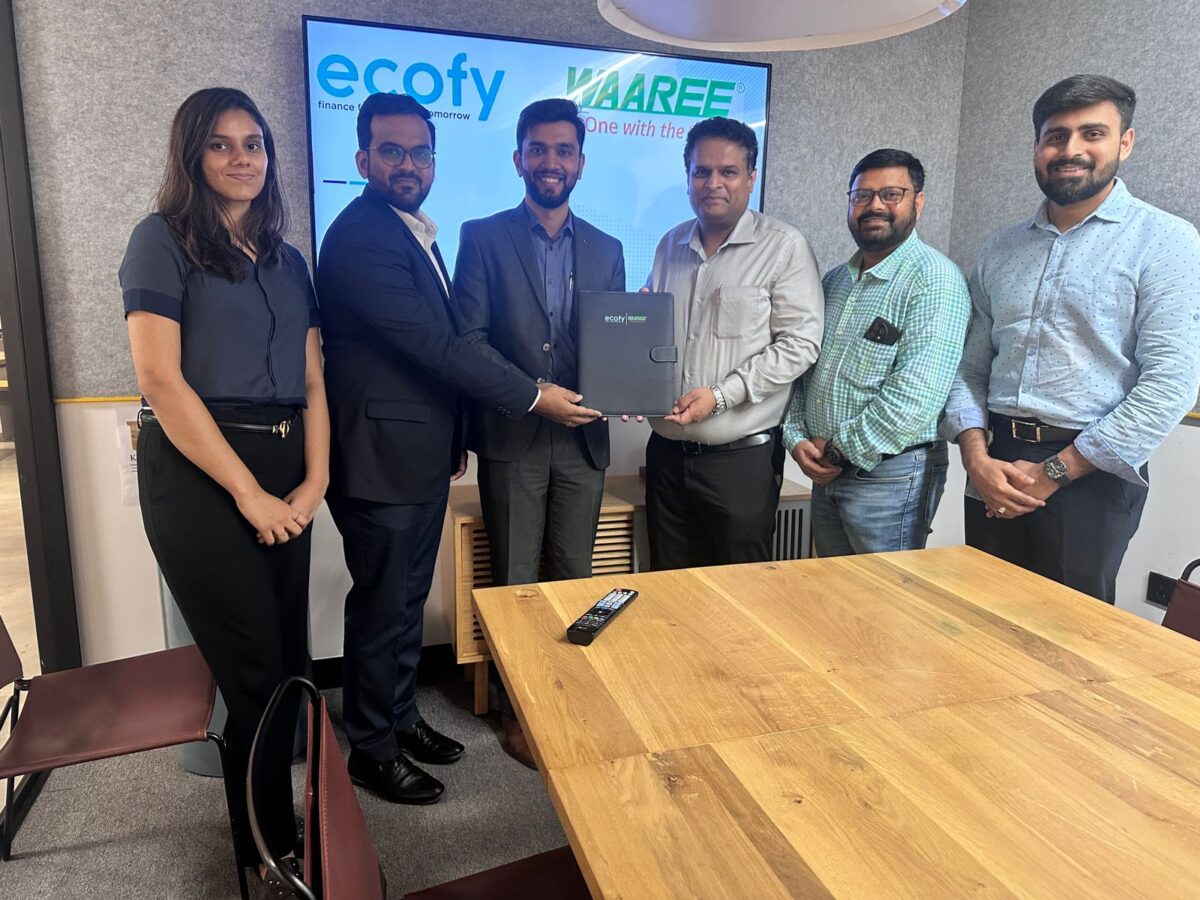Finance
Bypassing Financial Gatekeepers With Bitcoin

Photo by Jens Kalaene
In a world where large financial institutions influence the global economy, bitcoin stands out as a force for change, driving forward inclusion and diversity in the financial sector.
At its core, bitcoin represents more than just digital currency; it symbolizes a departure from the age-old financial structures dominated by a few large entities and families. These gatekeepers, often criticized for consolidating wealth among the elite, have perpetuated a cycle that extracts wealth from the economically disadvantaged.
Contrary to the centralized control of traditional banking, bitcoin enables direct financial exchanges without intermediaries. It reduces transaction costs and opens up access to financial services, especially for the unbanked populations worldwide. This is not just theoretical; it’s observable in real-world applications and initiatives that illustrates bitcoin’s potential to revolutionize how we think about and interact with money.
Enter Fedimint and Cashu, innovative projects that reveal bitcoin’s capacity to strengthen communities by equipping them with the tools to establish their own decentralized banks.
Fedimint leverages bitcoin to create a community custody and financial inclusion protocol, enhancing privacy and security for its users. By pooling their bitcoin holdings, communities can form a federated mint, operating on collective consensus. This model not only bolsters security and privacy but also instills a sense of community ownership and financial autonomy, a contrast to the hierarchical nature of traditional banking.
Similarly, Cashu builds on bitcoin’s technology to further decentralize financial power. It provides a secure and private platform for individuals to manage and transact in digital currencies, challenging the longstanding dominance of overbearing financial institutions. Cashu and Fedimint show the move towards financial self-sovereignty, filling the void left by traditional banks that have failed to cater to the masses’ needs.
Unlike traditional cooperative bank setups, where bureaucratic hurdles and regulatory gatekeeping can limit establishment and access, Mints like Fedimint and Cashu offer a groundbreaking approach. They remove barriers imposed by paperwork, governments, or traditional banks, democratizing finance in a way that allows anyone to participate. In this model, the community itself becomes the bank, representing the principles of decentralization and collective ownership.
These initiatives stand at the forefront of a broader movement to challenge big banks and the conventional financial establishment. This signals a redistribution of power within the global economy, marking a step towards a decentralized and equitable financial future.
The impact of bitcoin extends beyond the philosophical and into the practical, especially in emerging economies plagued by financial instability and inequality. In Venezuela, for instance, bitcoin has emerged as a critical tool for citizens battling hyperinflation, offering a more stable and accessible means to preserve their savings.
Across Africa, bitcoin facilitates cross-border transactions without high fees or the necessity for traditional banking infrastructure, enabling businesses and individuals to partake in the global economy. In Lebanon, amidst severe economic distress, bitcoin provides a lifeline for individuals seeking to avoid financial restrictions and safeguard their wealth from currency devaluation.
Fedimint and Cashu represent a move away from the reliance on large corporations and towards community empowerment. Projects are driven by a desire to see the unmet needs of the people. It’s a testament to the power of bitcoin and its underlying technology to effect change, not through confrontation but by creating alternatives that cater to the unbanked and underserved.
As projects like Fedimint and Cashu thrive, they don’t just challenge the status quo; they lay the groundwork for a future where financial liberation and access are not privileges but rights accessible to all. The rest of the world may follow, recognizing that the path to true financial inclusivity lies not within the walls of towering banks but in the collective hands of empowered communities.

Finance
Financial Wellness Center aims to customize student support – @theU

The Financial Wellness Center— specialized in enhancing students’ understanding of the role of finance in their lives and assisting them in making smart, informed decisions about their money—aims to improve the way it supports students by providing the right information at the right time to the right students.
“Each student’s financial wellness journey is unique, shaped by their distinct needs, circumstances, goals, and aspirations,” explained Gabrielle Mcallaster, director of the Financial Wellness Center. “It is clear that a one-size-fits-all approach to financial counseling does not suffice, and our students require distinctive guidance and support tailored to their individual situations.”
To accomplish this and to prepare for an increasing student population, the center is evaluating its processes and exploring how technology can support staff in providing students with an experience tailored to their needs and interests.
The center is partnering with University Information Technology to pilot the use of Salesforce as a customer relationship management platform. The way the system is being configured, each student’s personalized journey will begin with their profile, which includes demographic information, eliminating the need to ask redundant questions during each visit. Student profiles also serve as a repository for staff to add case notes from one-on-one counseling sessions and view notes from previous sessions, ensuring a comprehensive understanding of each student’s progress over time at the university.
Additionally, staff can indicate students’ interests on their profile, such as investing, saving, or budgeting. The technology then uses this information to invite students to workshops related to their interests, enhancing engagement and support.
Moreover, with the platform, the center can send automated communications to students. For example, if a student misses their counseling session, they will receive an email asking them to reschedule. This feature enhances the center’s ability to maintain consistent communication with students and helps students stay informed and engaged.
While this initial effort is focused on updating the Financial Wellness Center’s case management processes and implementing customized and automated follow-up communications to help students work toward their financial goals, it also presents an opportunity to prepare for future expansion into other Student Affairs departments. Collaborating with various departments within UIT, Student Affairs will use this test case to learn and plan for how to create the most seamless experience for students.
“As we look to incorporate this into more departments, we envision curating a host of information, resources, invitations, follow-ups, and connections from a wide range of offices,” said Annalisa Purser, special assistant for strategic initiatives in Student Affairs. “We want to be proactive in providing students with personalized information and experiences to support their individual student journeys.”
Finance
Waaree Energies partners Ecofy for low-cost finance to rooftop solar customers

Waaree Energies Ltd, India’s largest solar PV module manufacturer, has partnered with Ecofy, a non-banking finance company backed by Eversource Capital, to provide low-cost, hassle-free finance to homeowners and MSMEs adopting rooftop solar systems.
Waaree Energies Ltd, India’s largest solar PV module manufacturer, has collaborated with Ecofy, a non-banking finance company backed by Eversource Capital, to provide low-cost, hassle-free finance to homeowners and MSMEs adopting rooftop solar systems. Ecofy has committed INR 100 crore into the partnership.
The partnership will leverage Waaree Energies’ solar expertise and Ecofy’s digital financing solutions to accelerate the solarisation of over 10,000 rooftops across households and MSMEs, contributing to the government’s target under PM Surya Ghar Yojana 2024.
Kailash Rathi, head of partnerships and co-lending at Ecofy, said, ” Over the past 15 months, Ecofy has empowered over 5000 rooftop solar customers. We have invested heavily in this segment enabling penetration through product innovation and instant approvals. As the country prepares for the peak solar season, the collaboration between Ecofy and Waaree is expected to act as a catalyst, and aid in accelerating solar adoption and penetration across diverse segments of society.”
Pankaj Vassal, president-sales at Waaree Energies, said, “By integrating our solar solutions with Ecofy’s financing platform, we are working towards removing barriers and aiding in accelerating the adoption of solar power across households and businesses. Ultimately, this is expected to empower more people to embrace the benefits of clean energy while collectively building a greener, more environmentally-conscious India.”
Waaree Energies had an installed PV module manufacturing capacity of 12 GW, as of June 30, 2023 (Source: CRISIL Report). It has four solar module manufacturing facilities in India, with international presence.
This content is protected by copyright and may not be reused. If you want to cooperate with us and would like to reuse some of our content, please contact: editors@pv-magazine.com.
Finance
Global Finance Leaders Expect AI to Unlock Deeper, Faster Audits

Global companies increasingly use artificial intelligence to produce their financial statements and expect auditors to leverage the technology further to spot fraud and speed up their reviews, a new international survey shows.
The fast-evolving technology will help auditors predict trends and scan short-seller reports and consumer trends for market shifts and risks. “That’s where the additional rigor and the reliability and the quality is going to come in,” said Larry Bradley, global head of audit for KPMG International.
The Big Four firm released the results of its survey of 1,800 business leaders and corporate directors on …
-

 Politics1 week ago
Politics1 week agoHouse Republicans brace for spring legislative sprint with one less GOP vote
-

 World1 week ago
World1 week agoAt least four dead in US after dozens of tornadoes rip through Oklahoma
-

 Politics1 week ago
Politics1 week agoStefanik hits special counsel Jack Smith with ethics complaint, accuses him of election meddling
-

 Politics1 week ago
Politics1 week agoAnti-Trump DA's no-show at debate leaves challenger facing off against empty podium
-

 Politics7 days ago
Politics7 days agoThe White House has a new curator. Donna Hayashi Smith is the first Asian American to hold the post
-

 News1 week ago
News1 week agoAs student protesters get arrested, they risk being banned from campus too
-

 News1 week ago
News1 week agoVideo: Police Arrest Columbia Protesters Occupying Hamilton Hall
-

 World1 week ago
World1 week agoNine on trial in Germany over alleged far-right coup plot




















